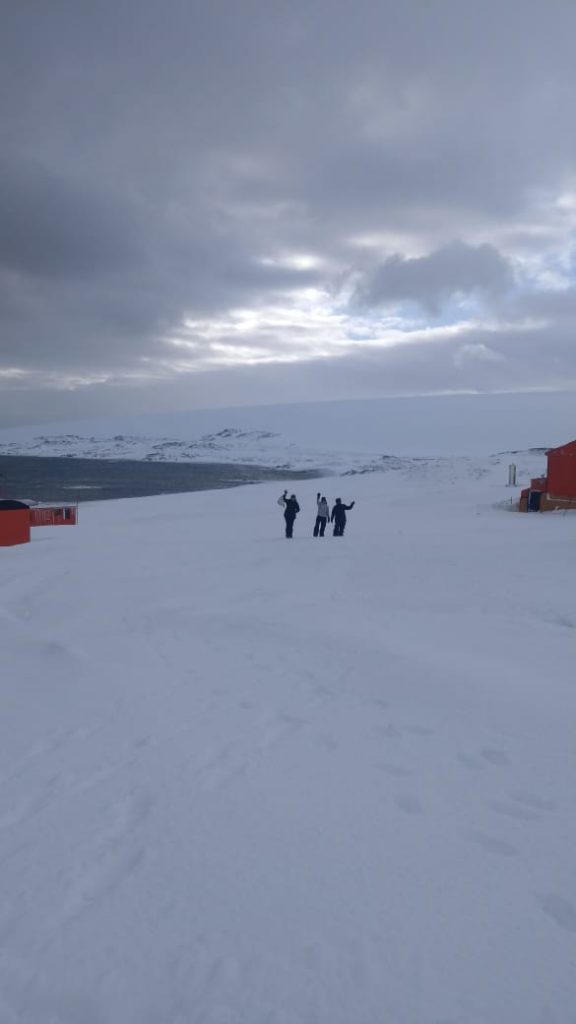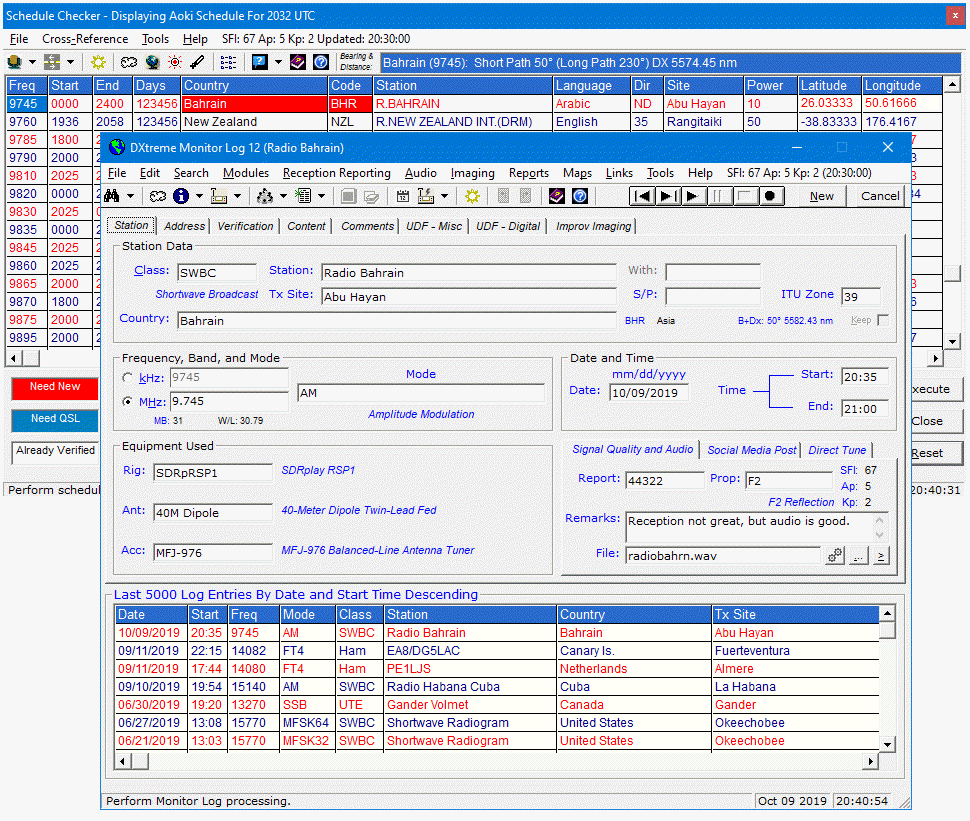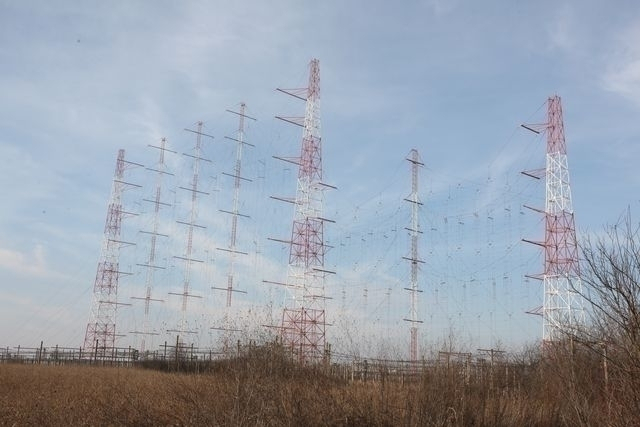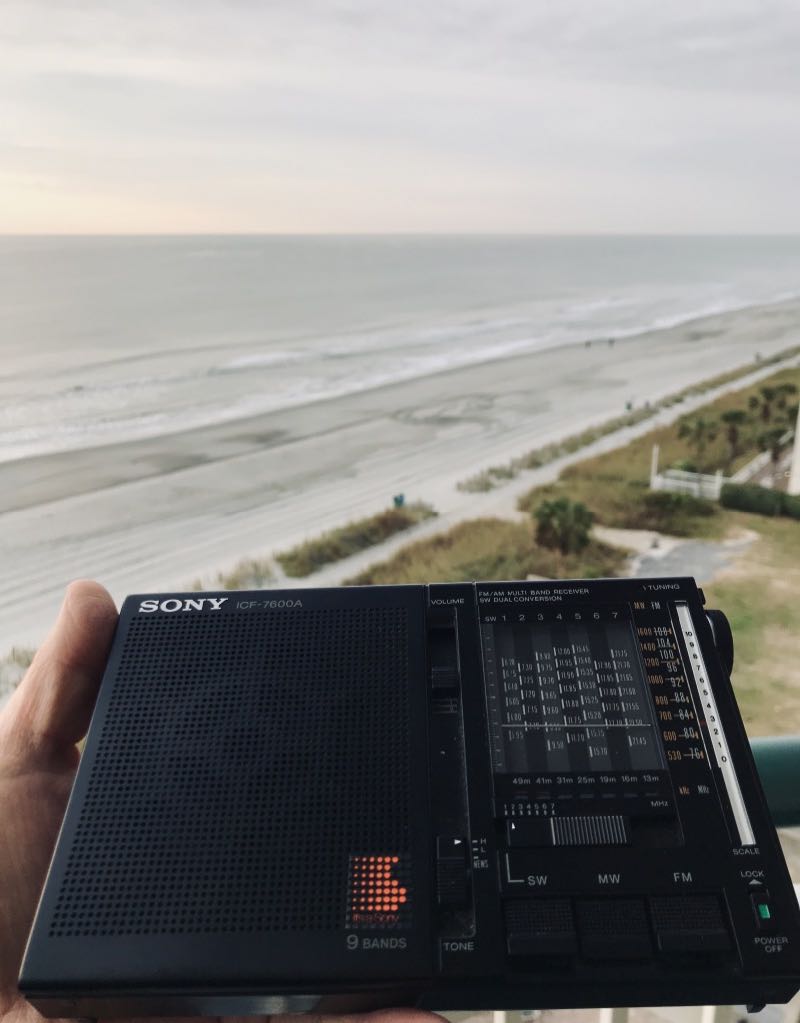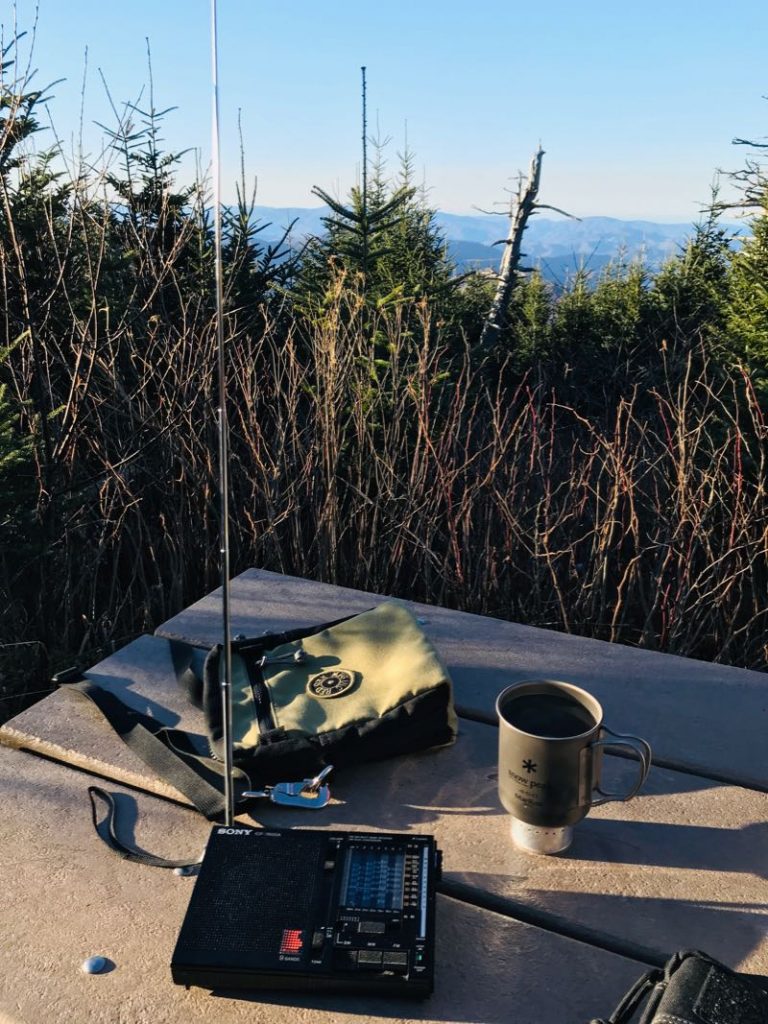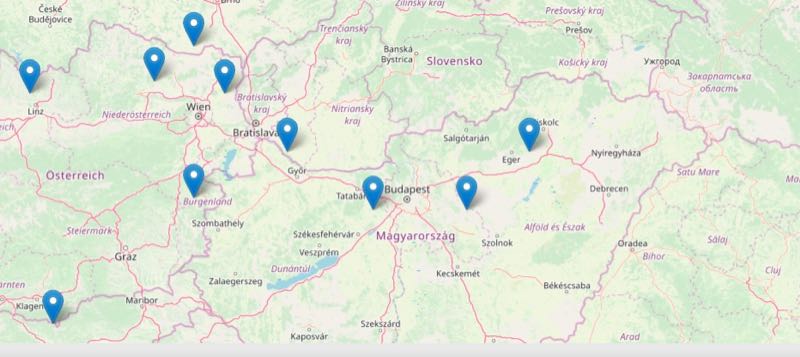DXtreme Software™ has released a new version of its popular logging program for radio monitoring enthusiasts – DXtreme Monitor Log 12 – which lets listeners and DXers log the stations they’ve heard using features that enhance their monitoring experiences.
User’s Choice of Country Formats
When starting Monitor Log 12 the first time as a new user – or when creating a new secondary database – users can select the country format they want to use: NASWA Countries or ARRL Entities. Country information is fully editable when changes occur.
Finding Broadcast Stations to Monitor
The Schedule Checker lets users import schedules from Aoki, EiBi, and FCC AM web sites and display schedule data according to the filter criteria they specify. A list box lets users switch between schedule types. And users can filter schedule information by band, frequency, station, country, time of day, language, and more.
When the What’s On Now? function is activated, the schedule refreshes automatically at the top of each hour for Aoki and EiBi schedules.
For each schedule item, Schedule Checker queries the Monitor Log 12 database to let users know – through user-defined, foreground and background display colors – whether they need to monitor a station for a brand-new or verified country. Schedule Checker also displays bearing and distance, runs optional Afreet Ham CAP propagation predictions, draws optional Afreet DX Atlas azimuth plots, tunes supported radios to schedule frequencies when users double-click schedule items, and starts log entries for scheduled stations monitored.
Finding Amateur Radio Stations to Monitor
Monitor Log 12 integrates with optional Afreet Band Master to let users see, on its graphical interface, where hams are operating. Monitor Log 12 supplies Band Master with an Entity Needed List based on the user’s Monitor Log database, making it possible for Band Master to indicate the stations whose entities (countries) users need to monitor.
Finding Utility Stations to Monitor
A Links menu provides convenient access to user-specified blogs and web sites that can inform users as to where utility and other stations may be operating.
Logging Stations
Monitor Log 12 lets users log all kinds of stations – radio, television, broadcast, Amateur Radio, utility, military, and more! And it lets users log stations across the radio spectrum – from long wave, to medium wave, to short wave, and beyond. Users can also select the display of kHz or MHz frequencies.
The Last Log Entries Grid on the Monitor Log window shows up to 5000 of the most recent log entries added. Its records can be sorted, and double-clicking records displays detailed data on the Monitor Log window. Users can resize the grid columns and scroll horizontally to columns that do not appear initially. Users can also display a larger, resizable Last Log Entries window. A Properties window lets users change the order of columns, the number of log entries to display, and the font and color attributes of grids and other program components, such as: Content Tabs for describing the content monitored, Script Editor for creating and editing scripts, Direct Tune interface for tuning radios, and Comments for typing ad hoc comments.
Reporting Reception
Users can create customized paper and e-mail reception reports for sending to stations plus club report entries for reporting catches to clubs and magazines.
When users add or display a log entry, Monitor Log 12 prepares a post announcing their DX catch and displays it on the Social Media Post tab. From there, users can drag the post to their favorite social media web sites to share their catch with others.
Using the Script Editor window, users can create and edit scripts that format reception reports, eReports, and social media posts to their liking. The software prompts users to select the script they want to use. Dozens of scripts come with Monitor Log 12.
Users can also print SWL and Address labels on industry-standard label stock, and send eQSL requests to hams automatically via the popular https://www.eqsl.cc site.
Imaging
Improv Imaging lets users associate ad hoc images with log entries using Capture,Scan, and Clipboard functions. Captures of stations received on digital applications, waterfall displays, facsimile and Amateur TV pictures are popular. The Improv Imaging tab and Application let users view images anytime, and an Improv Image Explorer lets them peruse their entire collection and display associated log entries. A QSL Imaging facility functions the same as Improv Imaging for associating QSLs.
Other Features
Rig Control – Retrieves the frequency and mode from supported radios and permits tuning from the Schedule Checker and Direct Tune interface. Rig control is provided through integration with Afreet Omni-Rig and SDR applications like HDSDR, SDR Console, and SDRuno.
Audio Archiving – Lets users maintain an audio archive of stations heard.
Reporting and Searching – Produces Performance, Stations, and Log Entry reports that track the performance and progress of the user’s monitoring station in its entirety. The software lets users tailor the appearance of reports plus FTP them to user-provided Web space for remote access and sharing. Reports can integrate with Afreet DX Atlas to create pin maps. Searches allow access to all monitoring data in a variety of formats.
ADIF Import – Lets users import ADIF-formatted log entries into their database.
eQSL.cc Inbox Update – Updates user’s database with eQSL.cc Inbox verifications.
Documentation – Context-sensitive Procedural Help, Field Help, and Microhelp are accessible per window to provide instructions quickly. A web-based Information Center is accessible from the Help menu for late-breaking assistance, and Installation Instructions and a Getting Started Guide are delivered in PDF format with the software.
Operating Systems, Pricing, Contact Information DXtreme Monitor Log 12 runs in 32- and 64-bit versions of Microsoft® Windows® 10, 8.1, 8, 7, Vista®, and XP. It retails for $94.99 USD worldwide for electronic distribution.
Pricing for CD versions and upgrading users is available on our Web site. All prices include product support by Internet e-mail. For more information, visit https://www.dxtreme.com or contact Bob Raymond at [email protected].

